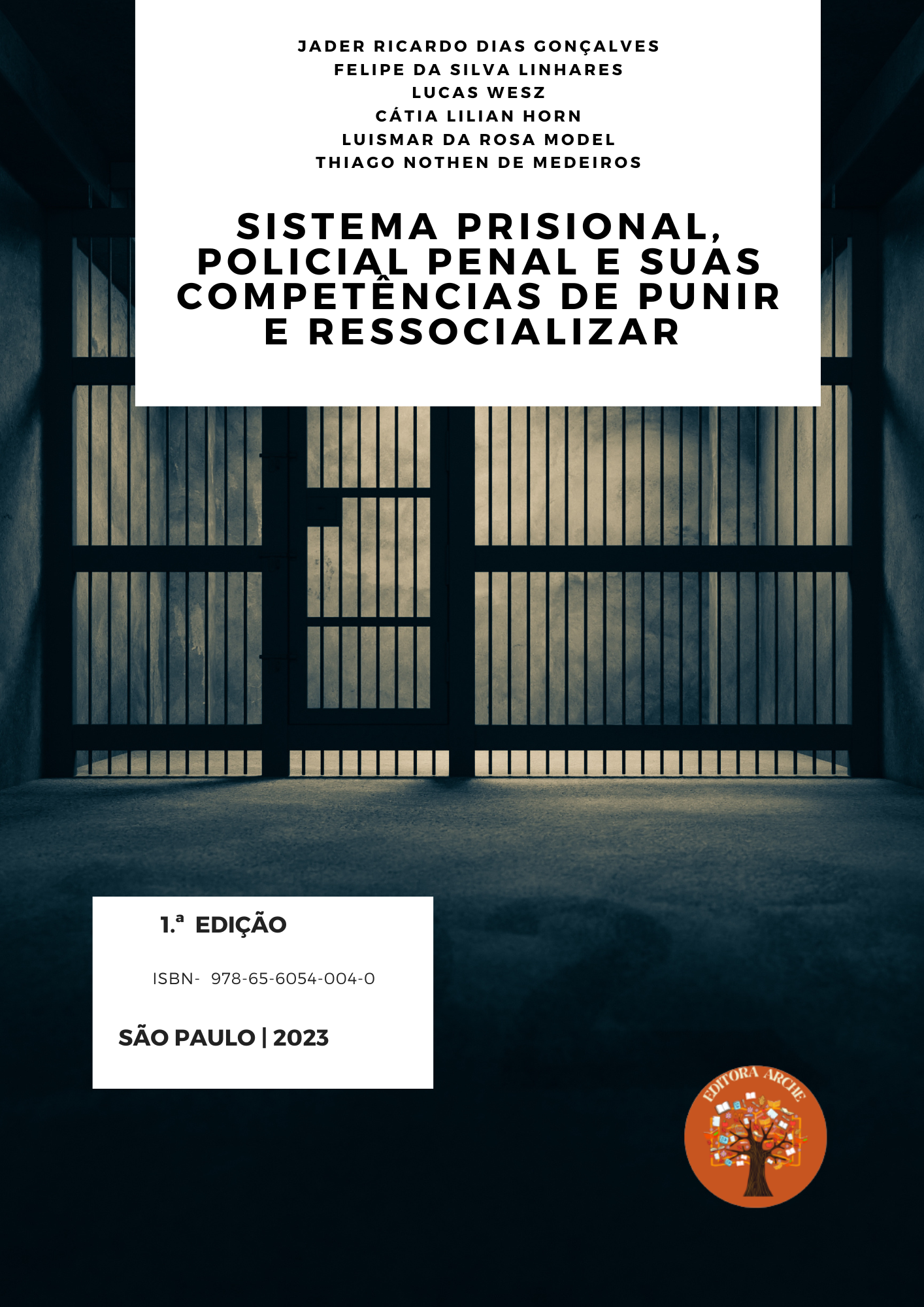PRISON SYSTEM, CRIMINAL POLICE AND THEIR POWERS TO PUNISH AND RESOCIALIZE
Keywords:
Prison system. Resocialization. Criminal Police and Society.Abstract
It is with great satisfaction that we present the digital booklet entitled "Penitentiary System, Custody Officer and their Sanction and Rehabilitation Competencies". This work aims to offer an enriching and comprehensive approach to the penitentiary system, the role of the custody officer and the intricate issues relating to the application of sanctions and the rehabilitation process of individuals serving sentences of deprivation of liberty.
Contemporary society is faced with major challenges regarding the administration of criminal justice and the rehabilitation of offenders. This digital booklet, divided into four chapters, immerses itself in the multiple dimensions of this intricate and extremely important topic for the justice system in Brazil.
The first chapter, entitled "Sanction Chronology", will take us through a historical path, unveiling the evolution of sanctions and the penitentiary system. We will talk about how sanctioning and rehabilitation approaches have evolved through the ages, from the draconian punishments of the past to the more modern and humanitarian conceptions. We will understand how the historical fabric outlined the penal framework that remains today.
Following this, the second chapter, called "Brazilian Penitentiary System", will undertake a meticulous analysis of the structure, functioning and vicissitudes of the Brazilian penitentiary system. We will address topics such as prison overcrowding, prison conditions, incidence of intramural crime and attempts to reformulate the system. Furthermore, we will listen to the way in which public policies have influenced the penitentiary system over the years.
The third chapter, entitled "Constitution of the Superintendency of Penitentiary Services (SUSEPE)", will delve deeper into the conception, organization and powers of this authority, or a similar body in other federative units. We will discuss the importance of this body in the administration of the penitentiary system, as well as how its duties relate to safeguarding the rights of prisoners and carrying out the sentences imposed.
In the fourth and final chapter, entitled "Rehabilitation: Methods and Perspectives", we will investigate the different strategies and programs aimed at reintegrating individuals into the community after serving their sentence. We will discuss the relevance of rehabilitation as a humanitarian and effective approach to reducing criminal recidivism. Likewise, we will analyze the future perspectives of this crucial aspect of the penal system.
We trust that this digital booklet constitutes a precious source of knowledge and contemplation for all those who aim to understand and contribute to the improvement of the penitentiary system and criminal justice in Brazil. The topic is challenging, but we believe that, through knowledge and consideration, we can uncover paths towards a more equitable and effective approach to the application of sanctions and the rehabilitation of offenders.
We appreciate your reading and hope that this digital book proves to be a valuable tool to expand your insight into these pressing themes in our society.
Respectfully
Downloads

Downloads
Published
How to Cite
License
Atribuição CC BY
